Yogita Limaye visits a Ukrainian village on the border of Russia and Belarus that has been torn apart by war.
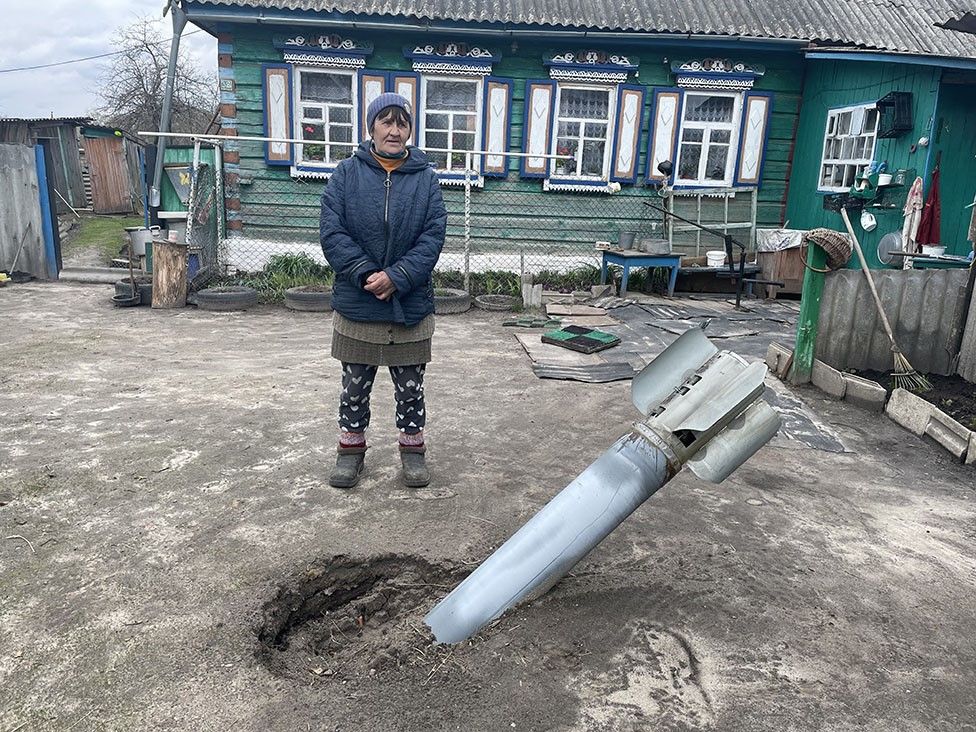
The village of Senkivka in Ukraine is situated at the nexus of the border crossing between Ukraine, Russia and Belarus. Once the site of festivals that celebrated the friendship between the three countries, it’s now a war front line, and its residents tell of families separated across borders living in fear. With rare access to the village, Yogita Limaye has seen first-hand the impact of a community torn apart by war.
Russian forces withdrew from northern Ukraine at the start of April, but mortar shelling and grenade attacks continue in Senkivka. Prior to the invasion, it was home to a little more than 200 people. Now there are just a handful who’ve stayed back.
Nina Malenok’s home is just by the side of a road that Russian troops used as they began their invasion of Ukraine, on their way to the northern city of Chernihiv, and the capital Kyiv.
Wedged into the yard of Nina’s home is the tail of a rocket fired in the early hours of the 24 February – the day the war started.
“I heard it land in my yard. There was fire and smoke everywhere. My lights went off. I jumped out of bed and ran out my house,” said Nina.
In the days that followed, hidden in a cellar, she heard planes flying overhead, heavy vehicles driving in and whistles being frequently blown.
On 8 March, Russian TV journalists came to her home accompanied by Russian soldiers.
“They were filming everything here, all the shells and everything. They told me Ukraine was attacking itself. Then they sent the numbers [printed] on the rocket to someone in Russia, and received a response right away that it was one of theirs.”
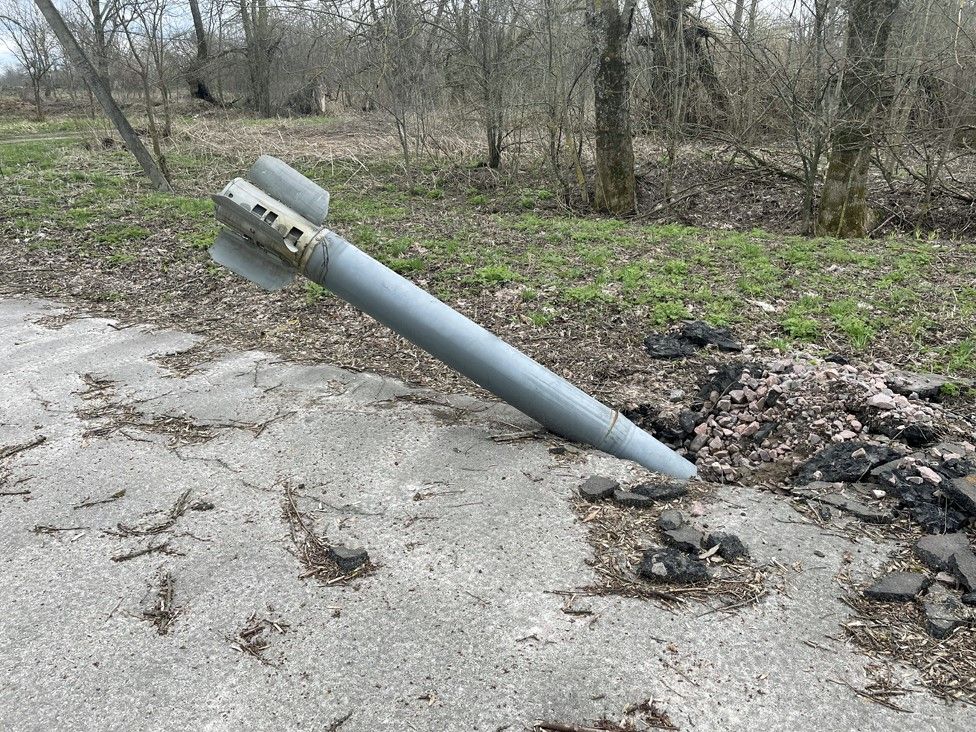
Many such rockets are scattered all over the village. Experts who’ve seen images of the rockets have told the BBC that they could have been carrying cluster bombs, banned in other parts of the world for the devastation they cause. Both Russia and Ukraine have been accused of using them.
Even after the withdrawal, Nina does not feel safe.
“It’s scary to live like this, but I’m used to my house, Where will I go? I can hear the shelling. I can show you from my yard the Russian checkpoint,” she said.
Her home, and others in the village are visible from Russia. Its troops can see what they have been firing at.
For Lidiya Bilousova, it’s the second time in her life she saw tanks at her doorstep.
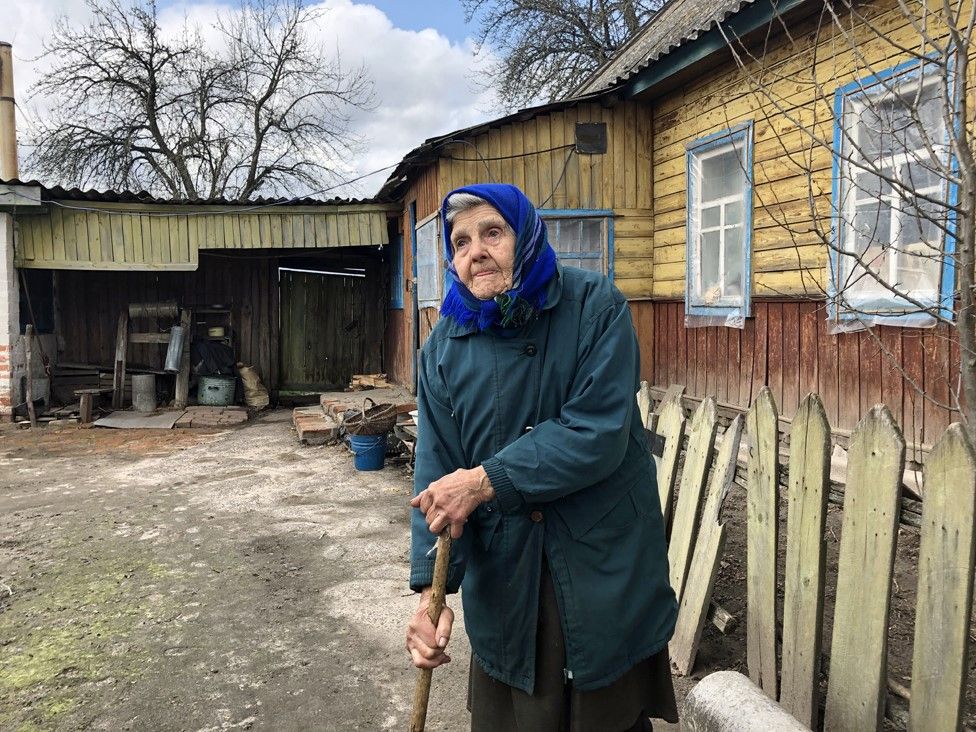
Born in 1930, she vividly remembers World War Two and German soldiers coming into their village.
‘We’d been warned by our retreating soldiers that they would be coming. So we hid in the trenches with dry bread in cloth bags. At dawn, they were in our streets, with their horses and machinery, crossing our gardens with machine guns. But there was no mass shelling like there is now,” she said. “Back in the day, I could run away. Now I’m old. I can’t anymore.”
“Here’s what I’ll tell you, there is nothing good about war,” Lidiya said. “After the last war [World War Two] what were we left with?”
The shelling frightens her, but she is unwilling to leave the home she’s lived in for most of her life.
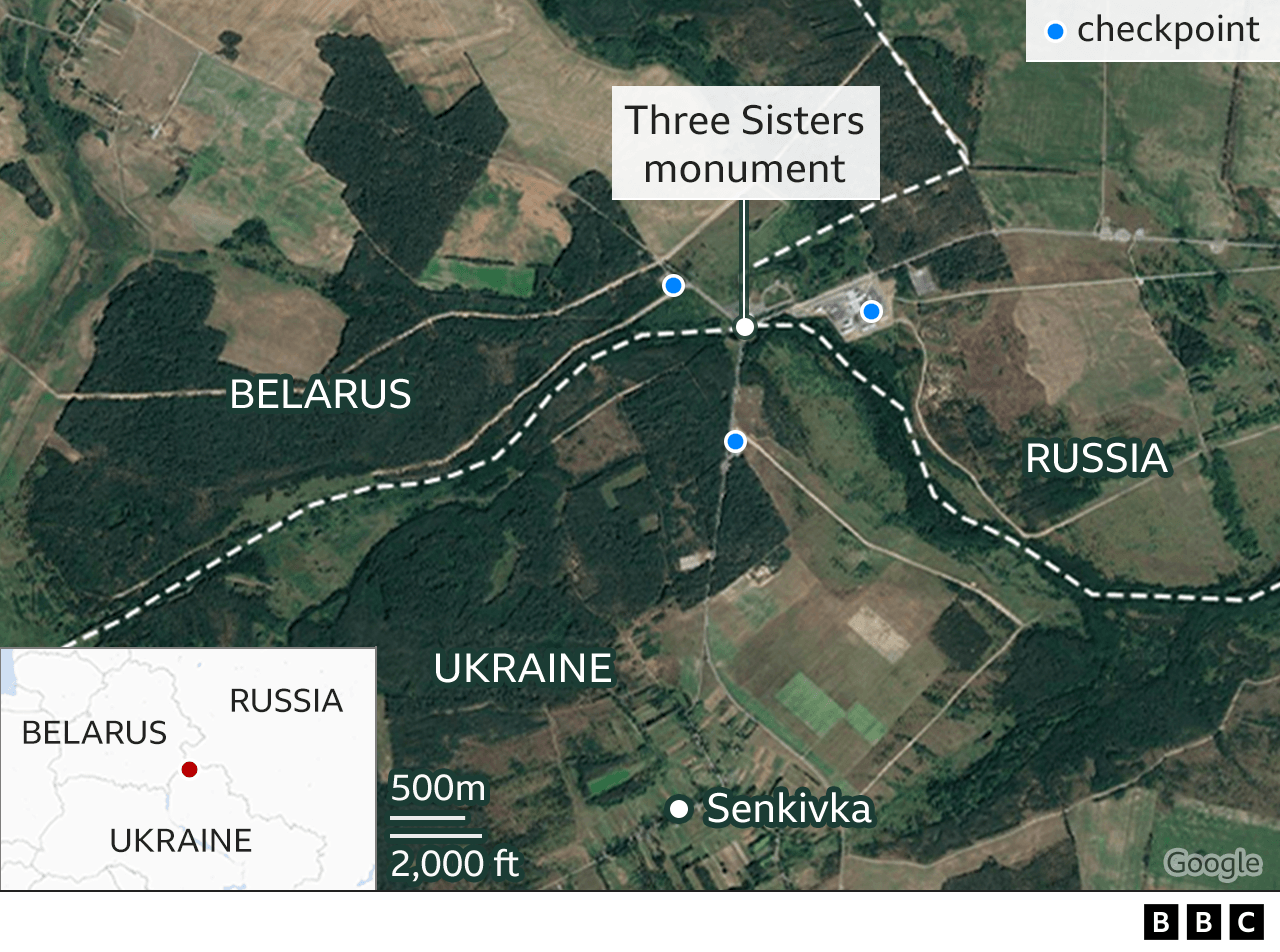
Prior to Russia’s invasion of Crimea in 2014, the three-way border crossing would be opened and a unity festival would be celebrated at the point where the countries meet, where a monument dedicated to the friendship between them called “Three Sisters” still stands.
‘It was a beautiful festival. We, the Russians, the Belarusians would celebrate together. People from all over, important dignitaries would all come,” she said.
Lidiya’s late husband was Belarusian.
“The three countries were friends for years, we visited each other, married each other. Now it’s over.”
Families and friendships spread across borders have been divided, both in thought and in distance. After 2014, crossing the border became harder for people on all sides. Now, it’s impossible.
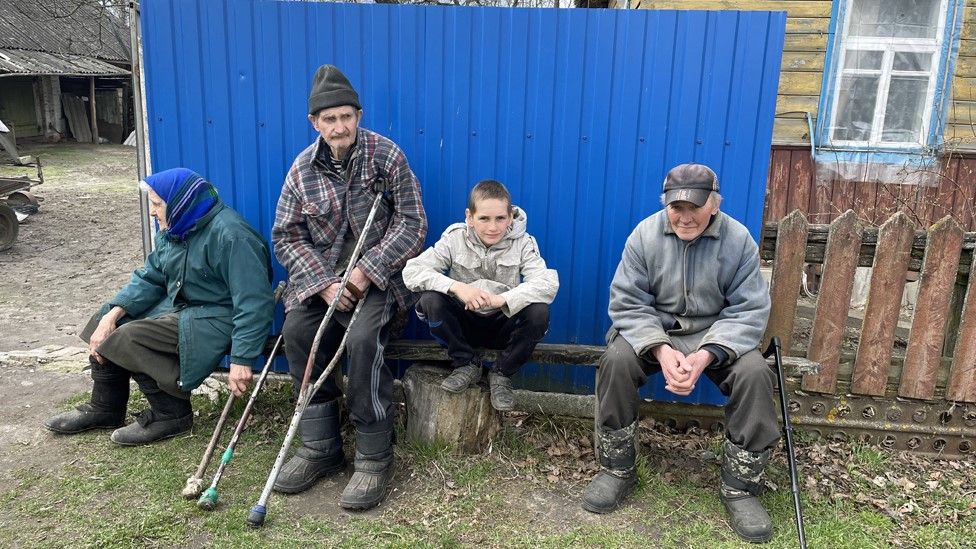
Mykhaylo Dudko’s two brothers, a sister, nephews and nieces live in Russia. He hasn’t met his family in years. Now, he’s unable to understand them.
“My sister told me it was us who started the war. But we had no such intention. It was Russia which invaded us. I want my family to use their heads, to look at the situation independently,” he said.
Nina Malenok said she’s stopped talking to her brother who lives in Belarus.
“He says it’s America who attacked you, and you blame Russia. He’s just five miles away across the border, and he doesn’t believe what’s really happening,” she said. ” I want to cross him out of my life because of that.”

War in Ukraine: More coverage
- DETENTION CAMPS: Refugees on trauma of filtration camps
- WATCH: Inside Kyiv’s trench defences
- ODESA ATTACK: ‘My world was destroyed by a Russian missile’
- READ MORE: Full coverage of the crisis
